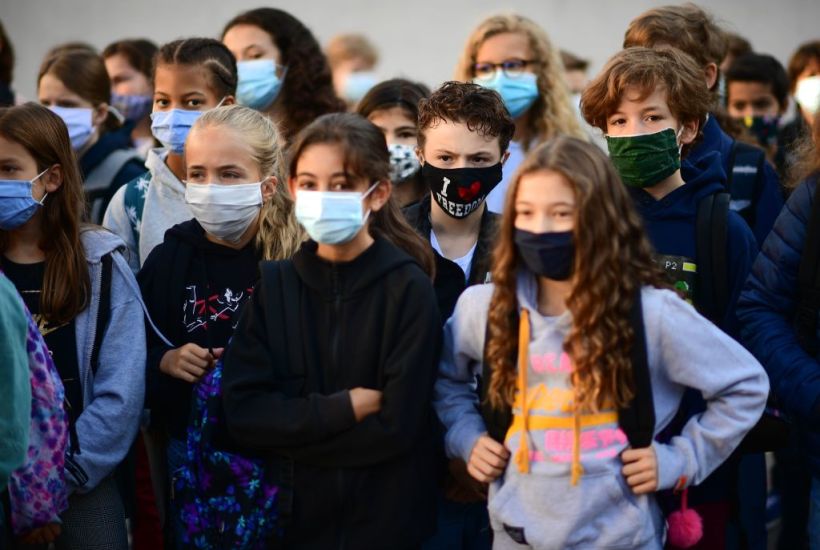Secondary-school children returning to school from 8 March will be required to wear masks in classrooms, at least for several weeks. That is in contrast to the initial return of children to school last summer. It wasn’t until November that they were required to wear masks at school, and then only in corridors and other communal areas.
But should we be forcing children to wear masks? A German study – in a preprint which has yet to be peer-reviewed – has reported negative symptoms of children who wear masks in that country.
Last autumn, researchers at the University of Witten/Herdecke set up a registry for parents, teachers and doctors to report their observations of children wearing masks at school. After a week it had received 20,353 entries, referring to 25,930 children aged 0 to 18.
The researchers then analysed the results of the 17,854 entries which had been made by parents. Of those, 60 per cent reported increased irritability in the children concerned, 53 per cent reported headaches, 50 per cent difficulty in concentrating, 49 per cent ‘less happiness’, 44 per cent reported a reluctance to go to school, 42 per cent malaise, 38 per cent impaired learning and 37 per cent drowsiness or fatigue.
Headaches and concentration issues were reported to be more prevalent in 13-18 year olds, while 7 – 12 year olds were more likely to be restless, to have their sleep affected and not to want to go to school.
While the study records widespread dissatisfaction with masks, these figures cannot be taken as representative of the entire population of German children. They are not a randomised sample of children, but are a self-selected group who were moved to fill in the online form.
It seems inevitable that parents were more likely to want to fill in the form if their children were suffering problems than if they were not. Moreover, the authors note that the link to their online survey appeared on the websites of online groups who were critical of Covid restrictions. There is no control group, either. It would not be possible to design a blind controlled study involving something as obvious as wearing mask, as you can’t offer a placebo.
Nevertheless, as the researchers point out, there is a lack of evidence on the use of masks in school – either on their effectiveness in preventing the spread of infection or on their side effects. Children are being forced to wear masks out of a sense of precaution, not on the strength of any evidence.
Got something to add? Join the discussion and comment below.
Get 10 issues for just $10
Subscribe to The Spectator Australia today for the next 10 magazine issues, plus full online access, for just $10.





















Comments
Don't miss out
Join the conversation with other Spectator Australia readers. Subscribe to leave a comment.
SUBSCRIBEAlready a subscriber? Log in